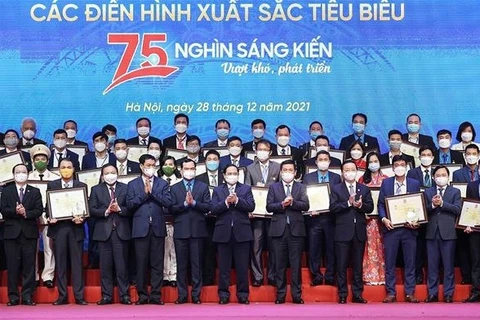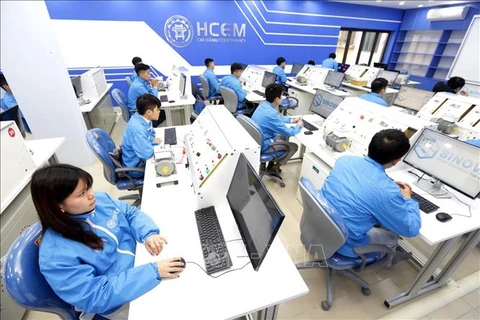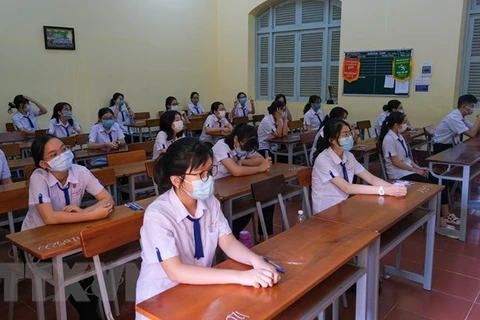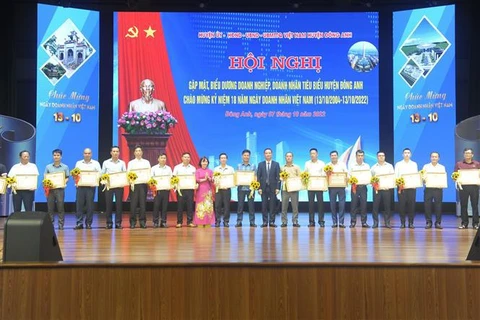Hanoi (VNA) – The Ministry of Planning and Investment (MPI) said it has collected opinions from ministries, sectors, localities as well as domestic and foreign organisations and experts on its draft national programme on raising labour productivity and the government's draft resolution on the programme.
According to Dang Duc Anh, Vice Director of the MPI's Central Institute for Economic Management (CIEM), the draft programme highlights viewpoints, targets and solutions to improve labour productivity in the 2022-2030 period and measures to realise them.
It focuses on analysing the labour productivity in particular industries, regions, economic sectors and influencing factors; mechanisms and policies affecting labour productivity, with a broader scope than previous projects, he said.
Meanwhile, it also generally analyses the economy, economic sectors, key economic regions; results achieved in terms of labour productivity of the whole country and by economic sectors, regions and localities; labour quality; and limitations and weaknesses in the field, thus giving specific tasks and solutions, said Anh.
Commenting on the draft programme, Deputy Minister of Planning and Investment Tran Quoc Phuong said that the draft scheme should highlight that increasing labour productivity will be a key driver for socio-economic recovery and development, and at the same time a key motivation for the improvement of incomes and quality of life.
He stressed that improving labour productivity must base on the premise of reform, the improvement of the quality of market economy institutions and the restructuring of the economy in a practical and effective manner, with the leading role being digital transformation, the innovation of growth models of key economic regions, the restructuring of economic space, urban economic development, and the promotion of regional linkages.
The process will contribute to restructuring the economy, sectors, regions and economic zones towards increasing competitiveness, innovation capacity, independence, self-reliance and resilience of the economy, he added./.
According to Dang Duc Anh, Vice Director of the MPI's Central Institute for Economic Management (CIEM), the draft programme highlights viewpoints, targets and solutions to improve labour productivity in the 2022-2030 period and measures to realise them.
It focuses on analysing the labour productivity in particular industries, regions, economic sectors and influencing factors; mechanisms and policies affecting labour productivity, with a broader scope than previous projects, he said.
Meanwhile, it also generally analyses the economy, economic sectors, key economic regions; results achieved in terms of labour productivity of the whole country and by economic sectors, regions and localities; labour quality; and limitations and weaknesses in the field, thus giving specific tasks and solutions, said Anh.
Commenting on the draft programme, Deputy Minister of Planning and Investment Tran Quoc Phuong said that the draft scheme should highlight that increasing labour productivity will be a key driver for socio-economic recovery and development, and at the same time a key motivation for the improvement of incomes and quality of life.
He stressed that improving labour productivity must base on the premise of reform, the improvement of the quality of market economy institutions and the restructuring of the economy in a practical and effective manner, with the leading role being digital transformation, the innovation of growth models of key economic regions, the restructuring of economic space, urban economic development, and the promotion of regional linkages.
The process will contribute to restructuring the economy, sectors, regions and economic zones towards increasing competitiveness, innovation capacity, independence, self-reliance and resilience of the economy, he added./.
VNA

























